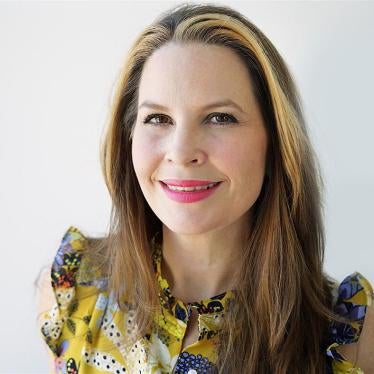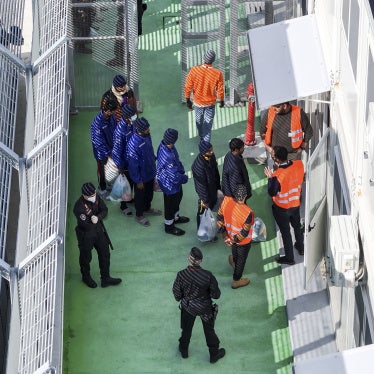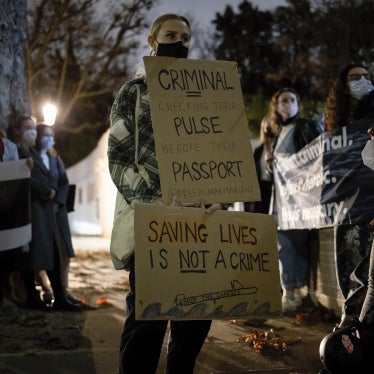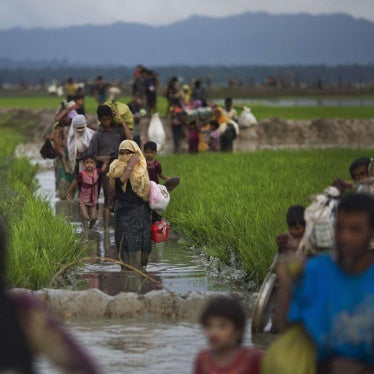On Sept. 10, members of the International Olympic Committee will vote for a new president for the first time in 12 years. The campaign for the I.O.C. presidency is a discreet event that does not attract much media coverage (how many of the six candidates can you name?), but if you care about human rights, the stakes are high. This may be the last chance for many years to reform the committee’s approach to repressive governments that seek to host the games. It is imperative that the committee elect a president willing to lead, not cave in, on this issue.
The 12-year term of the current president, Jacques Rogge of Belgium, will be remembered in large part for the glaring contradiction between the I.O.C.’s explicit vision of its lofty role in the world (as outlined in the rules and guidelines of its charter) and the fact that Mr. Rogge has been responsible for two Olympics with extensive human rights violations: the 2008 summer games in Beijing and the 2014 winter games in Sochi, Russia, which start in less than six months.
To host the Olympics, governments and cities pledge not only to build sparkling new stadiums but also to uphold the I.O.C.’s “Fundamental Principles of Olympism”: respect for human dignity and press freedom, and a rejection of “any form of discrimination.” But the I.O.C. under Mr. Rogge has failed to enforce its own rules.
The 2008 Beijing games, which cost an estimated $40 billion to stage, led to a host of rights violations, including abuses of migrant workers who were building Olympic infrastructure and a harsh clampdown on civil society and media, with punishment (including imprisonment) for those trying to protest.
Now the I.O.C. is preparing to stage another Olympics in a host country, Russia, that almost appears to be taunting organizers and sponsors by flagrantly flouting its pledge. Starting in 2008, my organization, Human Rights Watch, has documented myriad Russian abuses associated with preparation for the Olympics. These include government harassment and intimidation of activists and journalists, abuses of migrant workers building all the major Olympic venues (including the media center) and forced evictions of some families without compensation. Some migrant workers who tried to complain have been detained.
Over the past year, Russia has also introduced repressive laws targeting certain nonprofit organizations as “foreign agents.” With raids, threats and intimidation, the crackdown has been the most severe of its kind in the post-Soviet era. Central to this campaign is a new law targeting lesbian, gay, bisexual and transgenderpeople. All these efforts are wholly at odds with the Olympic ideal, as expressed in its charter, of “promoting a peaceful society concerned with the preservation of human dignity.” Russian authorities are apparently counting on the I.O.C. to keep quiet again.
The shame here is that the I.O.C. can and has used its considerable leverage to improve the conduct of host nations. Countries with repressive governments often seek to host the Olympics to improve their global reputation, and only the I.O.C. can make the Olympics happen. In the lead-up to the 1988 summer games in Seoul, public protests against the military dictatorship escalated in South Korea, prompting the I.O.C. to press strongly for a democratic transition. While I.O.C. pressure was not the only factor in bringing about change, democratic elections were in fact conducted before the games.
Starting in 2000, the I.O.C. has attempted to ensure that the Olympics are “green,” and as a result, it now audits not only such matters as sports venue completion but also environmental impact. Because of the bribery scandals uncovered at the Atlanta Games in 1996 and Salt Lake City in 2002, it also vets corruption. There is no reason the new I.O.C. president could not issue a mandate to strictly assess the human rights records of bidding countries and monitor a selected host country’s progresstoward improving that record.
The election of the I.O.C. president is determined by the committee’s 98 voting members (mostly sports federation leaders and members of various royal families). Only 16 are women, which may help account for why there are no female candidates. To date, only one candidate, the financier Richard Carrión of Puerto Rico, has publicly condemned Russia’s discriminatory laws and environment. The election is not designed for serious reform.
Thus whoever is elected cannot be counted on to make the necessary changes himself without pressure from outside. Nominally a nonprofit, the I.O.C. is a multibillion-dollar enterprise, earning its money through franchising, television and sponsorship rights. Before another I.O.C. president is selected, the corporate sponsors who make the Olympics possible should insist that the I.O.C. president enforce the committee’s own rules about human rights. Unless sponsors and franchise-holders like NBC, Coca-Cola, G.E., McDonalds and Visa want to risk being associated with the first officially homophobic Olympics, they must find their voices — before the next I.O.C. head is anointed.
Minky Worden, director of global initiatives at Human Rights Watch, edited “China’s Great Leap: The Beijing Games and Olympian Human Rights.”









